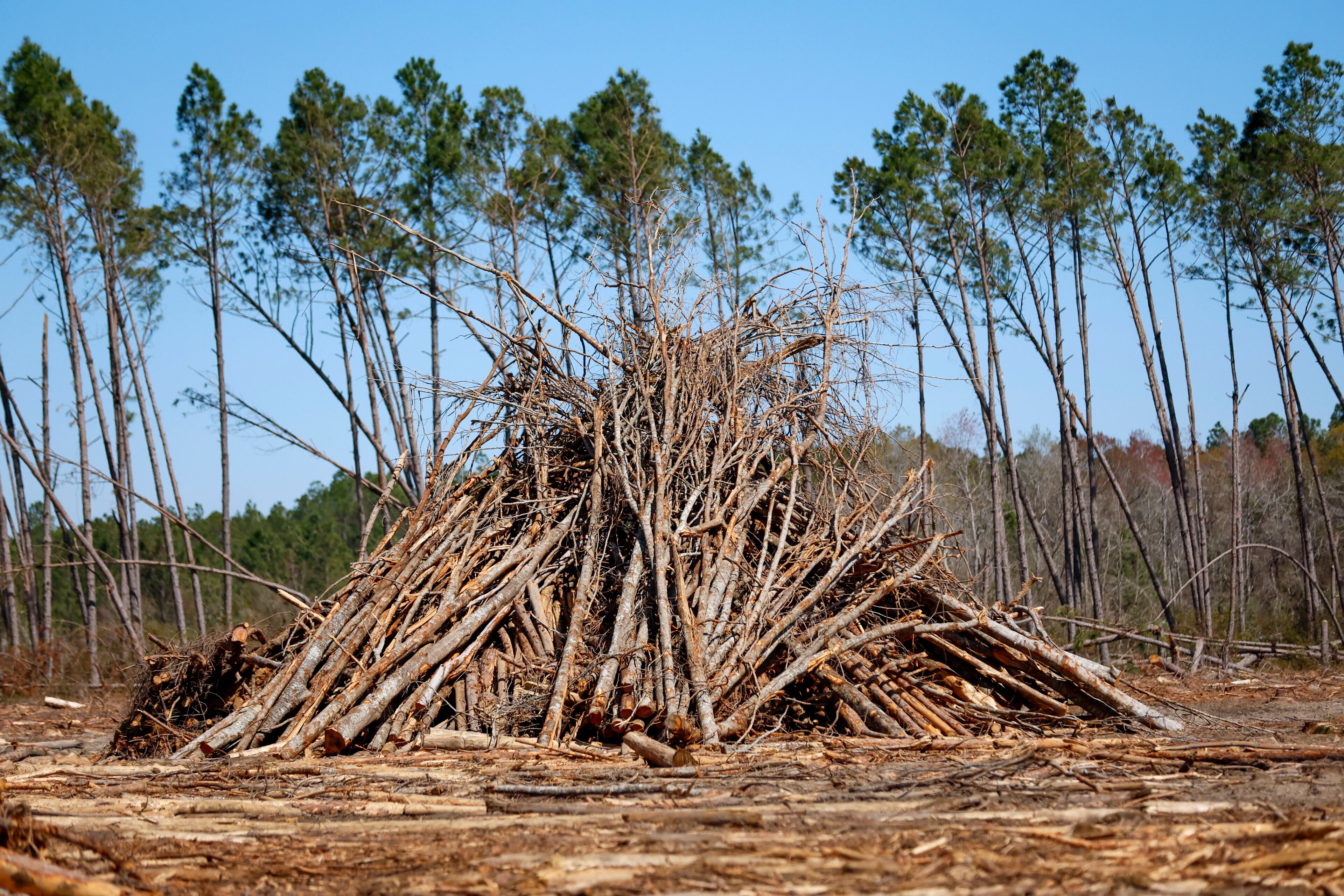Another ‘above-normal’ hurricane season may be on the way, forecasters say
It’s been just over six months since Hurricane Helene inflicted historic damage in Georgia and other Southeastern states. Many homeowners, businesses and farms across the region are still in the thick of what’s likely to be a yearslong cleanup.
The official start of a new hurricane season will be here June 1. And if a new forecast proves accurate, Georgians should brace for another season of heightened tropical activity.
An influential group of researchers from Colorado State University predicted Thursday that the Atlantic Basin will produce an above-average 17 named storms during the upcoming hurricane season. Of those, nine are expected to grow into hurricanes and four are predicted to reach major hurricane status (Category 3 or greater).
That’s above the average of 14.4 named storms and 3.2 major hurricanes observed between 1991 and 2020.

The researchers said their forecast was driven by the presence of exceptionally warm temperatures in tropical regions of the Atlantic Ocean, where most hurricanes form. Those conditions are expected to persist in the coming months.
Water temperatures can be influenced by short-term weather patterns, but many studies have shown the vast majority of added heat that’s been trapped in Earth’s atmosphere by human activity has been absorbed by the world’s oceans.
“A warm Atlantic favors an above-average season, since a hurricane’s fuel source is warm ocean water,” the scientists’ report said.
Research has shown global warming is making hurricanes more destructive by increasing the odds of extreme rainfall and allowing more storms to undergo “rapid intensification” — a swift increase in a storm’s wind speed. Last year, Hurricane Helene’s winds increased by 55 mph in just 24 hours as it approached Florida’s Big Bend region.
Conditions in the tropical Pacific Ocean, which influence hurricane formation in the Atlantic, are also likely to be favorable for hurricane development, the forecast says.
Predicting where a hurricane will strike is notoriously difficult even a few days before landfall, let alone months before a storm forms. Still, the researchers calculated the odds that each state could see a tropical storm in close proximity.
For the 2025 season, Georgia has a 37% chance of a hurricane coming within 50 miles and an 8% chance of a major hurricane approaching its borders. Both odds are slightly above the historical average.

The CSU researchers stressed that “thorough preparations should be made every season, regardless of predicted activity.”
“It takes only one storm near you to make this an active season for you,” CSU professor Michael Bell said.
The possibility of another hyperactive season is unwelcome news for many Georgians, who are still rebuilding from past storms — especially Hurricane Helene, which was likely the most destructive storm in state history.
Helene caused an estimated $5.5 billion in damage to Georgia’s agriculture and forestry industries, the biggest sector of the Peach State’s economy, according to the University of Georgia. Helene, which also devastated Florida, the Carolinas and parts of Tennessee, was the seventh-costliest tropical storm to strike the U.S. since 1980 and has been blamed for at least 219 deaths.
Last year, Hurricane Debby’s torrential rains also caused major flooding in parts of southeast Georgia.
Pam Knox, an agricultural climatologist at the University of Georgia, said moisture from tropical storms can be beneficial for Georgia farms in summer and late fall, as long as the system isn’t too strong.
“What we’re really hoping to get is some tropical rainfall, but not necessarily the winds or the flooding like we did last year,” Knox said.
The CSU scientists say they will release an updated forecast June 11. The federal government’s official predictions for hurricane season are typically unveiled in late May.


